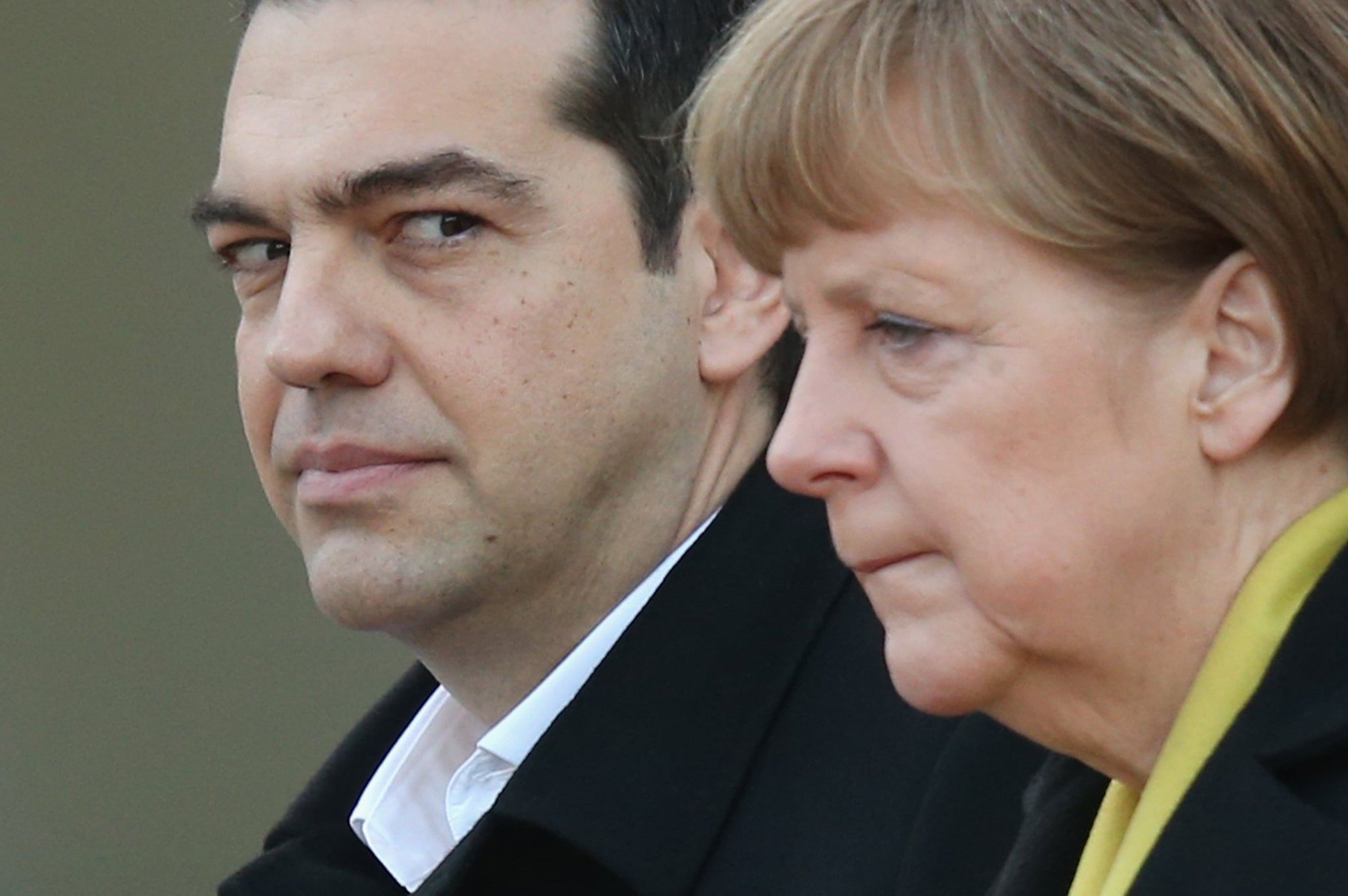When did European politics lose its sense of empathy?
From the eurozone's tough Greek bailout deal to David Cameron's austerity agenda at home, human compassion is out of fashion for politicians

Riots are breaking out in Athens and forest fires burn around the Greek capital as the anger of the people spills over. The country’s creditors have confirmed they will insist on even harsher austerity measures, despite a no vote in a national referendum on exactly that proposal.
Angela Merkel, the German Chancellor, and Wolfgang Schäuble, her Finance Minister, remained firm, in spite of a warning from the International Monetary Fund that, without substantial debt relief, any new bailout would fail. The message is clear: we don’t care about the wishes of your people, nor do we care about their suffering. Democratic process means nothing; obey the creditors, or we’ll take a wrecking ball to your economy.
Greek upset over the harsh terms attached to Europe’s latest financial deal isn’t merely a question of a belligerent refusal to pay. Living standards have plummeted in Greece, with alarming results. Heart attacks are rising among young people, youth unemployment has reaching staggering rates and hospitals and pharmacies struggling to treat and prescribe for life-threatening conditions. Signs in chemists list medicines that are out of stock – not obscure medications, but insulin, heart medication, thyroid tablets.
Just a fortnight ago in Britain, a short video of Ken Livingstone’s speech in the wake of the London 7/7 bombings circulated on the 10th anniversary of the event. The clip from the former mayor, like many famous political speeches, speaks of community, resilience in the face of tragedy, and the importance of sympathy and empathy.
A decade on, empathy is an unfashionable political emotion, and the effects of that cultural change are being felt across Europe.
Last week, the Home Office announced cuts to the subsistence payments given to Britain’s 27,800 destitute asylum-seekers. A single parent with one child seeking asylum in Britain will now receive £73.90 a week, rather than the £96.90 previously paid, because, the Home Office says, that is “significantly more cash than is necessary” to feed, clothe and nurture an adult and child in one of the most expensive countries in Europe.
Meanwhile the Children’s Society warns that an increasing number of vulnerable children are being forced to represent themselves at immigration tribunals, due to the removal of legal aid for such cases under the Legal Aid, Sentencing and Punishment of Offenders Act 2012.
If you fall sick in Britain, your luck may run out, too: David Cameron and Iain Duncan Smith are considering forcing workers to “save up” for their own sick pay and periods of unemployment – an idea borrowed from that bastion of workers’ rights, Singapore. Most people save up for a rainy day, if they’re able to. It’s not a surprise that a washing machine doesn’t last for ever. But saving up to replace a social safety net stripped away is another matter, and ignores the fact that the people least able to save are the people most likely to be sick – those in menial jobs, with poor working conditions and caring responsibilities, the already disabled.
The policies knocked out by governments at home and in the eurozone share a common approach: they fit an ideological mission statement and ignore a human cost.
The explosion of welfare sanctions in Britain mines the same seam: pressured Jobcentres are expected to meet targets and issue ever more sanctions without considering what happens when people living on subsistence benefits suddenly find themselves with no money for food.
In the Mediterranean sea, desperate people attempting to flee conflict and start a new life in Europe climb into overcrowded boats, and Calais teems with tents holding families seeking asylum. The response is the same: a focus on numbers, cost and a grandstanding refusal to appear politically “soft” on immigration from almost every country in Europe.
Ms Merkel’s meeting with a young Palestinian asylum-seeker who told the Chancellor that she dreamed of studying and settling in Germany was viewed across the world, shared widely on social media because of the unexpected heartlessness of the response. Rather than empathising with the child’s plight, and the suffering her family had endured, Ms Merkel spoke only in terms of numbers and of money: Germany simply could not afford to keep her, and there were too many people already in a similar situation.
The German leader was derided for the callousness of her rebuke, but the response is symptomatic of the thrust of political feeling in Europe and beyond. Human suffering, and the extension of empathy, has become an unnecessary distraction in policy making. The crisis rhetoric in modern politics dictates that fiscal responsibilities and ideology come first. The catastrophic effect this can have on individual lives is a side effect – though easily foreseen, it has found no place in the implementation of policies.
This lack of empathy isn’t just cruel, it’s also counter-intuitive. The human cost of austerity goes far beyond the period in which a country’s economy endures those methods. An economy can grow again, quickly or slowly, but the effects of poverty and ill health last a lifetime. Psychologically, it’s difficult to ever shrug off the effects of extreme hardship or poverty, family bereavement, chronic ill health or the memory of violent conflict. The impact of punitive government measures is long-lasting and widens inequality and social discord. Riots may not be uncommon in the future, as Greeks will already be too aware.
The reaction to a crying Palestinian girl shows that the world has more capacity for, and appreciation of, human empathy than political elites have accepted.
Join our commenting forum
Join thought-provoking conversations, follow other Independent readers and see their replies
Comments
Bookmark popover
Removed from bookmarks